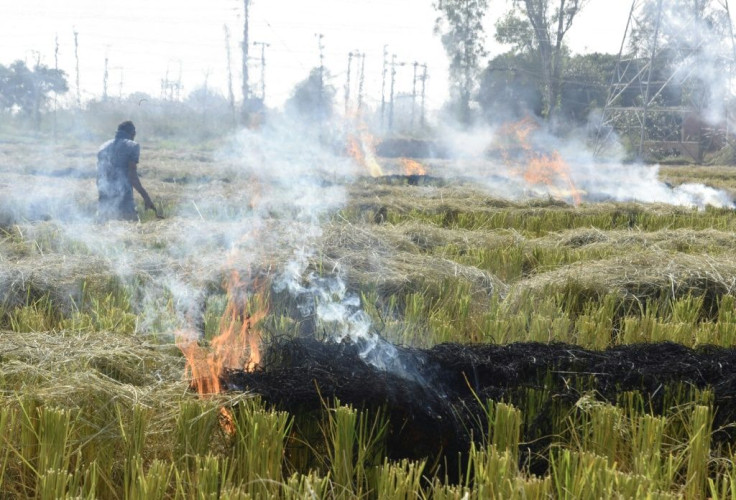Delhi Races To Cut Pollution On Coronavirus Warnings
New Delhi unveiled a slew of plans Monday aimed at reducing the Indian capital's annual toxic smog, as authorities warned the severe pollution could worsen the coronavirus epidemic.
Air in the metropolis -- home to 20 million people -- becomes a noxious cocktail of dust and smoke each winter, caused by vehicle fumes, industrial emissions and smoke from agricultural burning.
The haze regularly sees the city ranked as one of the world's most polluted.
In a virtual news conference Monday, Delhi Chief Minister Arvind Kejriwal said authorities would introduce a series of initiatives -- including setting up a "war room" to deal with hot spots when they arise, and trialling new technology to deal with old problems.
For starters, authorities will test a so-called bio-decomposer process, which would turn crop stubble into fertiliser, Kejriwal said.
The fermented liquid, made with a type of cane sugar and flour, is meant to slowly decompose the straw.
Smoke from burning stubble -- particularly from neighbouring states -- is blamed for nearly half the air pollution in New Delhi, even though it is officially outlawed.
Air quality will be monitored in a new war room, and there will be checks on construction sites.

Authorities will also introduce a phone app for people to report polluters.
Delhi's measurements of PM2.5 -- tiny particles that get into the bloodstream and vital organs -- often soar to almost 40 times the World Health Organization's recommended safe level of 25.
Pollution levels plunged earlier this year when the months-long nationwide lockdown against coronavirus halted much industrial production.
But experts say the respite may not significantly reduce the seasonal "airpocalypse".
"The lockdown has helped in the sense that the baseline levels are down," Anand Krishnan, a community medicine professor at the All India Institute of Medical Sciences in Delhi, told AFP.
"But the reasons for the spike of pollution in October and November -- climatic, farm fires -- have not changed."
People with pre-existing lung or heart diseases worsened by pollution could be hit by a "double whammy" if they also contract Covid-19, Professor Dorairaj Prabhakaran of the Public Health Foundation of India told AFP.
Delhi has been badly hit by the epidemic, with almost 300,000 infections out of the nationwide total of 6.6 million.
© Copyright AFP 2024. All rights reserved.











